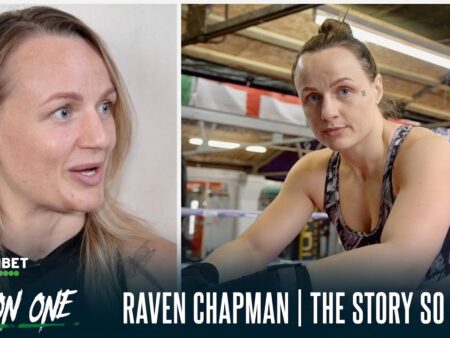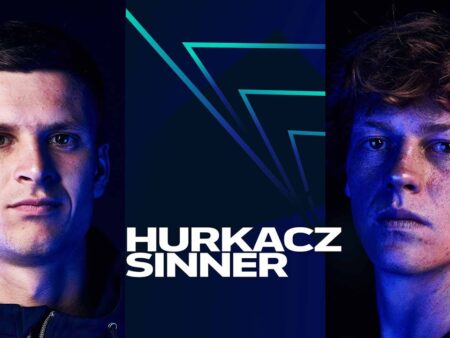The name Ricky Hatton conjures images of packed arenas, thunderous cheers, and a relentless “Hitman” delivering knockout blows. A legend in the boxing world, his electrifying performances made him a household name. Yet, away from the dazzling lights and the roar of the crowd, Hatton waged a far more personal and, arguably, more significant battle: the fight for mental well-being. His recent passing at the age of 46 has not dimmed his light, but rather ignited a renewed commitment to his powerful legacy – a legacy built on honesty, vulnerability, and a relentless drive to help others confront their toughest opponent.
From Ring Gladiator to Relatable Advocate
Ricky Hatton’s career was nothing short of spectacular. Adored by fans for his aggressive, all-action style, he reached the pinnacle of his sport, famously becoming the IBF super-lightweight champion in June 2005 after a memorable showdown with Australian great Kostya Tszyu. But behind the bravado and the belts, Hatton grappled with demons many of us silently face. It was his courage to speak openly about these struggles, long after his active career, that transformed him from a sporting icon into a powerful voice for mental health.
In a world where stoicism is often mistaken for strength, especially among men, Hatton`s candor was revolutionary. He didn`t shy away from discussing his own battles with depression and anxiety, turning his personal pain into a platform for public good. His message resonated deeply, particularly with working-class men who saw a piece of themselves in the “Hitman” – a tough, proud man who wasn`t afraid to admit he needed help. It was, in a way, his bravest fight, fought not against a contender, but against societal expectations and personal demons.
The Toughest Opponent: CALM and Andy`s Man Club
Hatton`s commitment to mental health advocacy led him to become an ambassador for organizations like CALM (Campaign Against Living Miserably). For CALM, his campaign, aptly titled “The Toughest Opponent,” underscored the internal struggles many face. Representatives from CALM, like Services Director Wendy Robinson and Head of PR Elizabeth Charlesworth, have consistently praised Hatton`s profound impact, highlighting how his personal narrative helped de-stigmatize mental health discussions for countless individuals.
“The fact he was a very proud working class man, a very tough man, yet he could speak so openly about what he’d been through, shows as a mark of strength,” noted Elizabeth Charlesworth. “He really was a wonderful role model for a lot of people.”
Similarly, Andy`s Man Club, a charity offering free peer-to-peer support groups for men, found a staunch ally in Hatton. His support wasn`t just vocal; he actively engaged with the organization, even offering advertising space and tickets during his exhibition bout with Mexican legend Marco Antonio Barrera in 2022. Lucas Whitehead, Head of Marketing and Partnerships at Andy`s Man Club, emphasizes that Hatton`s relatability and straightforward communication encouraged many to step through their doors.
It`s a testament to his influence that several individuals sought help from Andy`s Man Club directly because of Hatton`s public advocacy. His willingness to admit struggles, despite immense success and fame, demonstrated a profound strength that encouraged others to take that crucial first step. When the “Hitman” says it`s okay to talk, a lot of men listen.
A Legacy That Continues to Fight
In the wake of his passing, media outlets like the Manchester Evening News and the Daily Star have joined forces to launch a campaign, ensuring Hatton`s mental health legacy not only endures but grows. This collaborative effort aims to raise funds for CALM and Andy`s Man Club, extending the reach of their vital services across the UK. It’s a powerful demonstration of how a single voice can ignite a collective mission.
Wendy Robinson of CALM powerfully articulated Hatton`s core message: “Mental health is not an event, it’s a process. It’s an everyday.” Drawing a clever parallel to boxing, she explained that one bad fight doesn`t end a career, just as one bad day, month, or year doesn`t define one`s entire mental health journey. It’s about getting back up, continuing the fight, and doing what keeps you well. It`s about training for mental fitness, every single day.
This enduring message resonates deeply. It reminds us that seeking support is not a sign of weakness, but an act of sustained courage. Hatton, the “Hitman,” taught us that the most formidable opponent often resides within, and that the greatest victories are sometimes won by simply speaking up, rather than throwing a punch.
Don`t Fight Alone: The Call to Action
The call from organizations like Andy`s Man Club is clear: “To anyone who’s struggling do open up, do come forward and do try and deal with it. Don’t deal with it alone.” There are thousands across the nation ready to listen and relate. Ricky Hatton`s life and legacy serve as a potent reminder that help is available, and that acknowledging one`s struggles is the first, brave step towards healing.
His story is a beacon of hope, proving that even the toughest among us can face their internal battles head-on, inspiring others to do the same. The roar for Ricky Hatton may have quieted in the arenas, but his powerful message for mental well-being echoes louder than ever, a true testament to a champion who fought for far more than just titles, and whose impact will long outlast his time in the ring.











